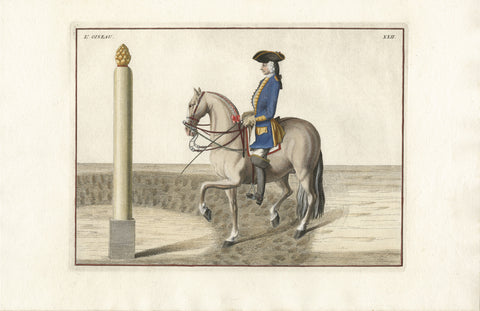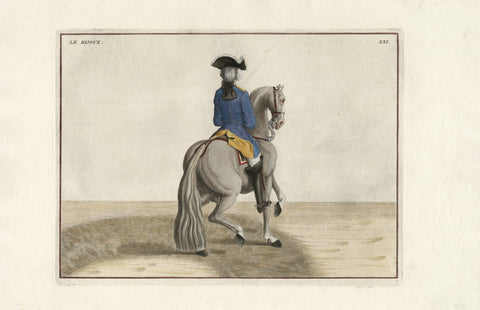
RACINET BOOK BUNDLE by Jean-Claude Racinet
This is the complete Xenophon Press collection of Jean-Claude Racinet books: Another Horsmanship, Racinet Explains Baucher, and Total Horsemanship in one package for your convenience and savings on shipping.
Another Horsemanship: Jean-Claude Racinet has devoted his life to the vindication of "L'equitation de L'egerete" (riding in lightness) which fosters balance by relaxing the horse-more so his mouth-excluding force in the wielding of the aids. This practical manual, describes the horsemanship of French Tradition - characterized by lightness - from a down-to-earth point of view.
Racinet Explains Baucher: Excellent introduction to the philosophy, method, and procedures of Baucherism, or the French tradition of "riding in lightness" that Baucher developed in the 19th century. Includes a translation of Baucher's "second manner."
Two appendices were added; the first one deals with the validity of Baucherism, in light of the last discoveries of "equine osteopathy," as exposed by Dr. Dominique Giniaux of France; the second is a translation of the very last part of the 12th edition of Baucher's Methode d'Equitation, dealing with his second "manner." This text has probably never been translated into English, and is of utmost importance. The riders who will endeavor to apply by the letter the progression described by Baucher in this text will, to their surprise, probably accede to a new and higher level of equestrian knowledge.
Total Horsemanship: Racinet provides a recipe for absolute balance, whereby all else succeeds. He searches for answers to riding problems from the inside and provides a thorough understanding of the cause. This is enjoyable reading, whereby you can gain relaxation in your horse.
This book outlines and explains the concept of "riding in lightness" as understood by Jean-Claude Racinet who has spent his life riding and teaching the French School of horsemanship.
Born in Paris in 1929, Jean-Claude Racinet is a graduate of St. Cyr, the French West Point, Class of 1950. He was a member of the French contingent in Korea (1950-53), where he was wounded twice. As an officer of the French army, he spent seven years in Tunisia and Algeria (1954-61) and four more years in Europe.
While he spent most of his army career during the time when the military was getting rid of their horses, he managed, between and during his sojourns overseas, to successfully attend the Superior Equitation Course in the Cavalry School of Saumur (1953-54), winning the title of Champion of Tunisia in open jumping (1956), and to become a member of the Jumping Team of the Military School in Paris (1953).
Riding teacher and trainer as a civilian after 1965, he was more particularly known by his retraining of difficult horses and later as an equestrian journalist by his always witty and sometimes scathing articles in the French equestrian monthly L'Information Hippique.
In the United States since 1983, Jean-Claude Racinet became a successful teacher, trainer, lecturer, clinician, and author. Xenophon Press published in 1994 his highly popular book Another Horsemanship, now in its second printing.
Jean-Claude Racinet has devoted his life to the vindication of "L'equitation de Legerete" (riding in lightness), which fosters balance by relaxing the horse - more so his mouth - excluding force in the wielding of the aids. In fact, the very essence of riding in the French Classical tradition.
softcover, 125 pages, illustrated.
Excerpt from the book:
When one pushes on a horse with the legs, he goes forward, and so does the bit. So, not much should happen as concerns the coming "onto the bit" of the horse, unless one pushes and pulls at the same time.
Now, if you push and pull together you give your horse two opposite orders; "go - don't go," and he can only be confused by the contradiction. Most of the time, he will choose to obey only one of these two orders - the one that fits best his character. All you're goig to get is a dull horse who will respond with less and less generosity to your legs' orders. Or, if the horse decides to obey your legs, he will have to put up with your hands' traction and will become heavier and heavier on the bit.
Or both.
If by contrast, you systematically open your fingers as you give an impulsive order with your legs, your horse will feel free, and will be more inclined to obey. This suppresses a major obstacle to impulsion.
- Item #: 6212
- Manufacturer: Xenophon Press
95.00


